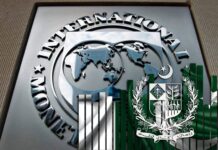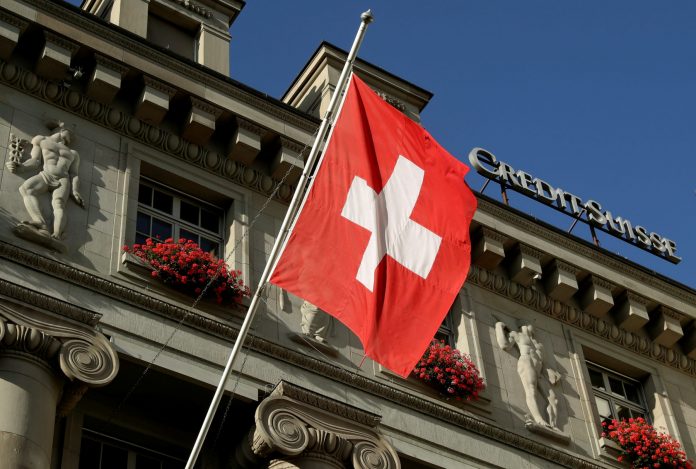UBS AG (UBSG.S) was examining on Saturday a takeover of its embattled Swiss peer Credit Suisse (CSGN.S), sources said, a move that could allay fears that an unfolding crisis might destabilise the global banking system.
The 167-year-old Credit Suisse is the biggest name ensnared in the market turmoil unleashed by the collapse of U.S. lenders Silicon Valley Bank and Signature Bank over the past week, during which the Swiss bank lost a quarter of its stock market value.
UBS, Credit Suisse and Switzerland’s financial regulator FINMA declined to comment.
Credit Suisse Chief Financial Officer Dixit Joshi and his teams were meeting over the weekend to assess their options for the bank, people with knowledge of the matter told Reuters, and the were multiple reports of interest from rivals.
U.S. financial giant BlackRock (BLK.N) said it had no plans or interest in a rival bid for Credit Suisse, while Bloomberg reported that Deutsche Bank was looking at the possibility of buying some of the bank’s assets.
Credit Suisse’s share price swung wildly during the week, and it was forced to tap $54 billion in central bank funding.
The mood in Switzerland, long considered an icon of banking stability, was pensive as executives wrestled with the future of the country’s biggest lenders.
Credit Suisse ranks among the world’s largest wealth managers and is considered one of 30 global systemically important banks whose failure would cause ripples throughout the entire financial system.
In a sign of its vulnerability, at least four of Credit Suisse’s major rivals, including Societe Generale SA (SOGN.PA) and Deutsche Bank AG (DBKGn.DE), have put restrictions on their trades involving the Swiss bank or its securities, five people with direct knowledge of the matter told Reuters.
Goldman Sachs cut its recommendation on exposure to European bank debt, saying a lack of clarity on Credit Suisse’s future would put pressure on the broader sector in the region.
The sector’s fundamentals were stronger and the global systemic linkages weaker than at the time of the global financial crisis, Goldman analyst Lotfi Karoui wrote in note to clients. This trend greatly limited the risk of a potential vicious circle of counterparty credit losses, Karoui noted.
“However, a more forceful policy response is likely needed to bring some stability,” Karoui said.

MARKET TROUBLES LINGER
Already this week, big U.S. banks provided a $30 billion lifeline for smaller lender First Republic (FRC.N), while U.S. banks altogether have sought a record $153 billion in emergency liquidity from the Federal Reserve in recent days.
This reflected “funding and liquidity strains on banks, driven by weakening depositor confidence,” said ratings agency Moody’s, which this week downgraded its outlook on the U.S. banking system to negative.
In Washington, focus turned to greater oversight to ensure that banks and their executives are held accountable.
U.S. President Joe Biden called on Congress to give regulators greater power over the sector, including imposing higher fines, clawing back funds and barring officials from failed banks.
Banking stocks globally have been battered since Silicon Valley Bank collapsed, raising questions about other weaknesses in the financial system.
U.S. regional bank shares fell sharply on Friday and the S&P Banks index (.SPXBK) posted its worst two-week calendar loss since the pandemic shook markets in March 2020, slumping 21.5%.
First Republic Bank ended Friday down 32.8%, bringing its losses over the last 10 sessions to more than 80%.
While support from some of the biggest names in U.S. banking prevented First Republic’s collapse, investors were startled by disclosures on its cash position and how much emergency liquidity it needed.
The failure of SVB, meanwhile, brought into focus how a relentless campaign of interest rate hikes by the U.S. Federal Reserve and other central banks – including the European Central Bank this week – was putting pressure on the banking sector.
Many analysts and regulators have said SVB’s downfall was due to its specialised, tech-focused business model, while the wider banking system was much more robust thanks to reforms adopted in the years after the global financial crisis.
But a senior official at China’s central bank said on Saturday that high interest rates in the major developed economies could continue to cause problems for the financial system.
























